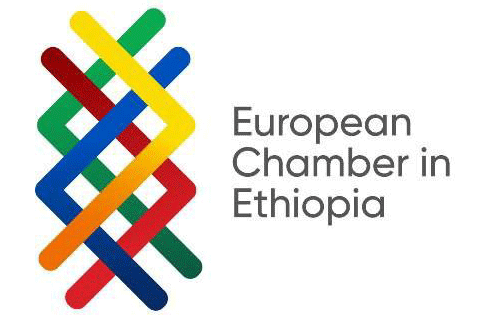
Ethiopian Investment Commission Commissioner H.E. Hanna Arayaselassie addresses members of European Chamber
After nearly half a century, Ethiopia announced that it is inviting foreign investors back into its trading sector. This landmark decision, announced in April 2024, signals a move away from the country’s previous strategy of shielding domestic businesses. The upcoming reforms were discussed during the European Chamber’s monthly CEO networking event that took place on May 16, 2024. Members of the European Chamber had the opportunity to discuss the directive and get some more insights from H.E. Hanna Arayaselassie, member of the Ethiopian Investment Board and Commissioner of the Ethiopian Investment Commission (EIC), who was the guest speaker at the event.
The Commissioner explained that the Ethiopian Investment Board meticulously planned this reform. Their comprehensive study examined the experiences of other nations and evaluated the rationale behind Ethiopia’s long-standing protectionist trade policies. For decades, the Ethiopian government prioritized nurturing domestic wealth creation. The aim was to allow sheltered domestic companies to mature and eventually integrate with the global market. However, this limited competition disincentivized domestic businesses from venturing into higher-value activities like manufacturing. The government acknowledged the shortcomings of the previous approach. The closed system fostered significant challenges, including informality and illegal practices within the wholesale, retail, import, and export sectors. The new policy aims to address these issues by introducing foreign investment.
The Ethiopian government anticipates a series of positive outcomes from this reform. Increased competition in the trade sector is expected to benefit various stakeholders. Foreign suppliers will gain access to improved networks for distributing their products. Consumers are likely to experience lower prices due to increased competition. Additionally, by formalizing previously informal businesses, the government anticipates a rise in tax revenue.
This move towards a more market-driven economy extends beyond the trade sector. The government has signaled its intention to further liberalize the logistics sector, underscoring a broader commitment to attracting foreign investment and fostering private sector participation. This reform has the potential to unlock significant economic growth for Ethiopia in the years to come. Previously restricted commodities like coffee, pulses, and oilseeds are now open for export by foreign investors. However, safeguards are in place. Companies with no prior Ethiopian sourcing experience must secure a minimum export transaction within their first licensing year, ensuring established business practices and a commitment to Ethiopian produce.
A significant shift is the opening of the import sector to foreign investors, excluding fertilizers. To participate, companies must either be manufacturers or act as authorized agents. Alternatively, a minimum import threshold has been established for the first year, catering to those without established Ethiopian partnerships.
The wholesale sector is now largely open, with investors only needing a standard contract. However, demonstrating a robust logistics infrastructure within Ethiopia is an additional requirement, ensuring efficient movement of goods. Foreign entry into the retail sector is permitted, but with limitations to protect smaller domestic retailers. These limitations likely involve minimum store size requirements, ensuring a level playing field.
The Ethiopian Investment Commission, responsible for issuing licenses, will prioritize applicants with proven experience and the capability to achieve the directive’s goals. Investors will also be expected to enter into detailed agreements, ensuring compliance with these goals. This directive represents a significant shift for Ethiopia, aiming to attract foreign investment and stimulate economic growth. By opening key sectors while implementing safeguards, the government seeks a balance between fostering development and protecting domestic interests.
The government has outlined a measured approach to liberalizing the trading sector, prioritizing controlled experimentation over immediate, sweeping reforms. This phased introduction reflects a desire to both unlock economic potential and ensure a smooth transition for all stakeholders.
latest News
EuroCham Launches a New Office and FDI Incubation Center
February 1, 2026
EU and EuroCham Sign Grant to Boost Ethiopia’s FDI competitiveness
November 22, 2025
EuroCham Networking Event Discusses New Income Tax Law
October 22, 2025
EuroCham Urges Reconsideration of EUDR Timeline
September 29, 2025
EuroCham Conducted Technical Discussions with Outgoing NBE Governor
September 17, 2025






